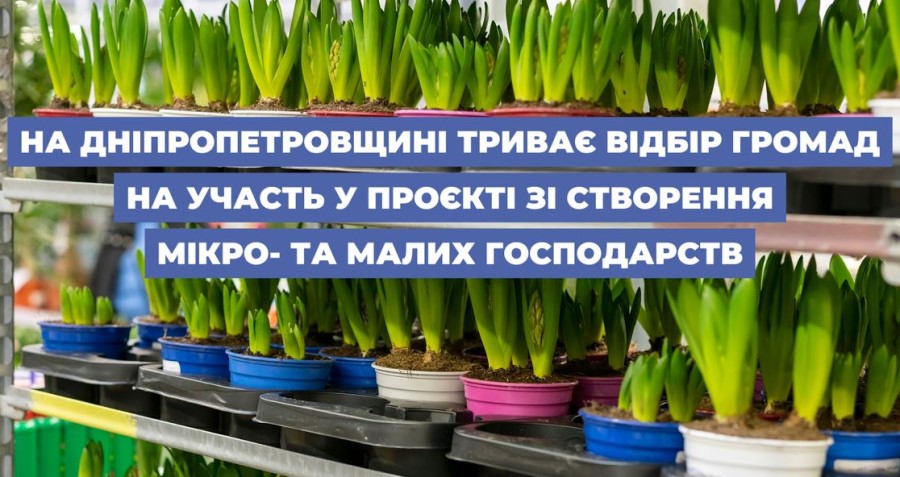Doing business

A project that will affect the development of the rural population and territories is being launched in the Dnipro region. IPRSA will select 15 communities to participate in the pilot project.
In June, 15 communities in the Dnipro region have a chance to become participants in the pilot project “Small Business Initiative Groups” implemented by the IPRSA initiative with the support of the EU. This was announced by Olena Tertyshna, head of the local Regional Office of U-LEAD with Europe:
“One of the tasks that our team sets itself is to help the hromadas of the region learn about new initiatives or opportunities for their development. This time we are talking about the pilot program for the creation of small owner initiative groups (SIGs) of the IPRSA project and how hromadas can join this program as municipal facilitators.”
Ross Bull, project manager of the EU’s Institutional and Policy Reform for Smallholder Agriculture (IPRSA) project, welcomed the participants. He emphasized that the project aims to increase the capacity of the agricultural sector at the national and community levels, i.e. the basic level.
According to him, the project’s goal is to form initiative groups of small owners at the community level to focus them on innovative ideas and increase income. One of the important tasks for local government representatives is to create a network of municipal facilitators who can help micro and small owners or farmers start their businesses and overcome obstacles.
“We are launching this pilot program in the Dnipro region in order to develop mechanisms that we will extend to the whole of Ukraine,” Ross Bull emphasized.
Serhiy Zamidra, expert of the EU project “Institutional and Policy Reform for Smallholder Agriculture” (IPRSA), introduced the idea of the EU-funded project.
The speaker explained that the difference in EU approaches is that significant support is provided at the level of micro and small farms, at the level of rural development. Significant EU funds are directed to the Common Agricultural Policy, which is an inseparable support for agricultural producers and support for rural development. Therefore, when developing the project, the key groups were identified as micro, small, and medium-sized farms with less than 120 hectares of land or no more than 100 cows.
The project is open to individual entrepreneurs or business entities, as well as individuals registered in the State Agrarian Register. That is, virtually all villagers who are motivated and interested in development can participate in the program.
The main sectors the project focuses on are beekeeping, pig breeding, dairy farming, and gardening.
“It is important that the community also decides on the direction that is important to them, so that they can direct which cluster you should develop, what to focus on, so that you can maximize the effect for the community and its residents,” said Zamidra.
The project aims to open up new opportunities for small business owners. According to the speaker, both participants and municipal facilitators will be trained. They will learn how to create added value for a product, how to use SWOT analysis and other tools to create an economic effect.
“It is important for the project to encourage communities to create initiative groups of small owners to implement innovations. Any policy implemented at the national or regional level without the participation of communities and stakeholders will not be fully implemented. That is why we start from the basic level: creating groups, identifying their needs, and finding areas for implementation,” Zamidra emphasized.
Facilitators, who will be appointed by local authorities, will help villagers start their activities. They will cooperate with “leading” small owners who understand the problems of agriculture and want to take advantage of market opportunities. These “lead” smallholders will be able to lead discussions on technical issues related to smallholder agriculture. Together, the local facilitators and the “lead” smallholders will be able to help smallholders analyze how best to innovate their agricultural practices.
A total of 15 communities in the Dnipropetrovska oblast will be selected to participate in the pilot project. They will receive in-person training in June.
If you think that facilitators from your local community should be involved in the training/capacity building, please send the following information by 17.00 on Tuesday, June 11, 2024 to Serhiy Zamidra (zamidra@gmail.com):
Name of the community;
Name, position and phone/email address of two proposed facilitators (for further communication);
A short official letter (1 page) explaining why the community should participate in the in-person training/capacity building of local facilitators on Thursday, June 20, 2024.
Source: https://decentralization.ua